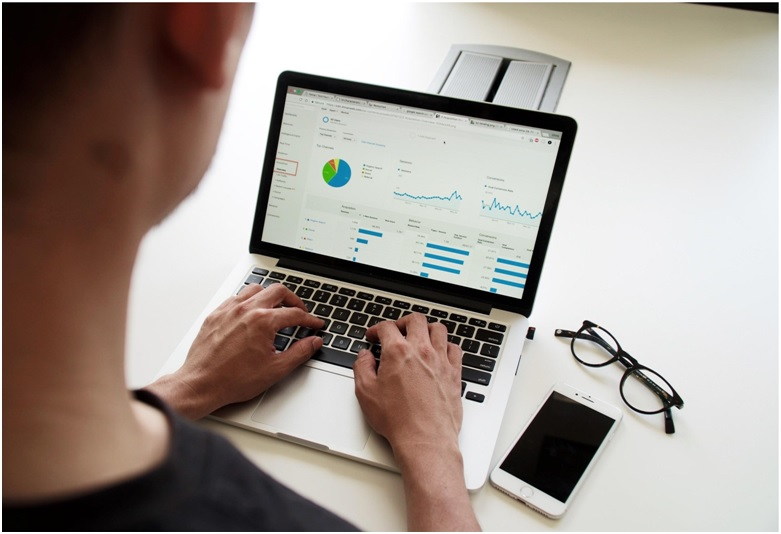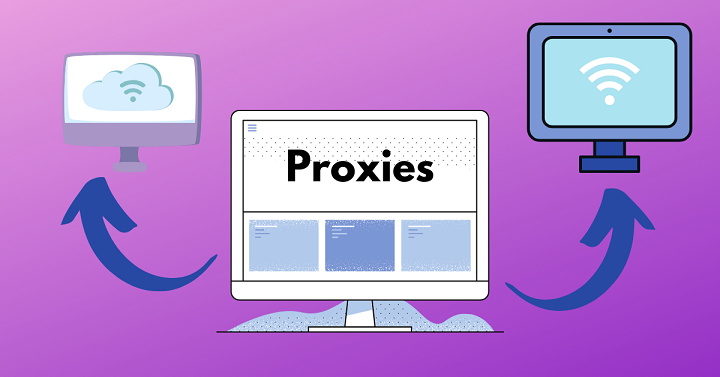When you embark on web scraping, you have to consider which proxy will be ideal for tour operations. You need to find strong bots that can be configured according to your liking.
This strategy can never be easy if you do not understand the nuances between static and rotating proxies. However, once you collect enough knowledge about them, you can easily navigate the web without major hindrances.
This article will explore the benefits of static and rotating proxies and help you make an informed decision. You will also learn what a sticky IP address is and how to decide which proxy type is more suitable for you.

What are Proxies and How Do They Work?
A proxy is a getaway between the user and the internet. Proxies provide access to the information that you need to get on the web. They also give security to your computer by filtering any harmful content from accessing your machine.
For instance, they protect your computer from threats such as malware. To do this, they sift through the traffic in your network.
When you browse the web, the proxy server will allow the request to flow through to the address requested and return with the necessary information if access is granted. The proxy server will forward the data received to your computer, and you can comfortably see what you were searching for.
In short, the proxy server is simply a virtual computer on the internet with its IP address known by your computer’s IP address.
Read Also:
When you make a request online, it will first be received by the proxy server and sent to the specified websites. It will then collect the response from the web and provide you with the data.
While performing this task, the proxy server can change the computer’s IP address so that the webserver doesn’t know the location from which you are web scraping. The proxy server can also block access to specific web servers depending on their specifications.
Why Should Businesses Consider Using Proxies?
Businesses require proxies to assist them in connecting to other networks indirectly. The proxy server will hide the user’s IP address and only expose the one in the proxy server.
Other than hiding the geographical location, businesses need to use proxy servers for other essential reasons, which include:
Balancing Load and Speed
Proxies control the amount of traffic that flows into a certain website. When there is massive traffic without using a proxy, the users will get an error result.
This outcome might frustrate buyers and online visitors that may be willing to make inquiries. As a result, it will affect the reputation and sales of the company. Therefore, it is critical to use proxy servers to control traffic.
Control Use of the Internet for Employees
Employees should have limits on what information they access on behalf of the company. This protects the company from any online attacks or breaches.
Employees might jeopardize the company’s network’s security by knowingly or unknowingly accessing some sites that cause huge damage to the organization. When proxies are used, they control and regulate the traffic of the web and block employees from accessing some sites.
Web Scraping
Businesses use web scraping to take information from various sites and use it for various purposes such as market research, SEO monitoring, and competitor analysis. To ensure this process is successful, organizations have to use proxies to avoid being blocked.
The Benefits of Static and Rotating Proxies
Static proxies allow access through a single IP address or a sticky IP address once you sign in, while a rotating proxy allows the IP address to change constantly upon visiting every server online.

Both proxies will maintain anonymity, although the static one might be compromised at one level.
Static proxies are easier to use because their IP addresses do not require rotating. Because the scraping is done from a static address, servers might not suspect any malicious activity.
With a rotating proxy, you will be open to access a variety of IP addresses in your device to access the web. The random IP addresses will provide more secure anonymity, but servers might speculate mischievous activity.
Uses of Static Proxies
Static proxies are used to provide speed, reliability, and anonymity to users. These proxies are not easily blocked because they have actual IP addresses that are usually connected to ISP.
When compared to other proxies, the speed of static proxies is higher. They provide reliable anonymity since they are not easily blocked.
Their stability also makes it difficult for them to be detected easily. Therefore, it is recommended to use static proxies when using susceptible sites because of these numerous benefits.
Read Also:
Uses of Rotating Proxies
Rotating proxies are ideal for the kind of web scraping that involves making numerous requests. The website cannot easily detect any suspicious activity because the proxy uses numerous IP addresses.
They can be sued by companies that have heavy loads or traffic because the loads will be distributed to several servers. It is also possible to extend the web limits because the IP address keeps on changing.
Conclusion
There are many reasons why you need to have extensive knowledge about static and rotating proxies. Each of them has numerous benefits and some setbacks depending on the type of business you have and the data you want to import from the web.
















